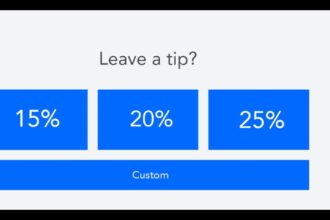Large-scale cleanup projects—whether residential, commercial, or industrial—require more than just heavy lifting. They demand efficient waste management solutions that are fast, scalable, and affordable. One of the most reliable and convenient ways to manage significant waste volumes is through a roll off dumpster rental.
- 1. Home Renovations
- 2. Construction Sites
- 3. Roof Replacements
- 4. Estate and Foreclosure Cleanouts
- 5. Disaster Cleanup
- Common Sizes:
- Things to Consider:
- ✅ Acceptable Items:
- ❌ Prohibited Items:
- 1. Determine Your Needs
- 2. Get a Quote
- 3. Schedule Delivery
- 4. Fill the Dumpster
- 5. Schedule Pickup
- Load Smartly
- Watch the Weight Limit
- Protect Your Property
- Avoid Overfilling
- 1. Efficiency
- 2. Safety
- 3. Flexibility
- 4. Environmental Compliance
Whether you’re clearing out an estate, demolishing an old structure, replacing a roof, or managing a construction site, a roll-off dumpster simplifies debris disposal. Instead of making multiple trips to the landfill, you get a single container delivered to your site, ready to handle everything from broken drywall to old furniture and yard debris.
This article offers a deep dive into what a roll-off dumpster is, when you should rent one, how to choose the right size, and how to use it properly for maximum benefit.
What Is a Roll-Off Dumpster?
A roll-off dumpster is a large, rectangular, open-top waste container designed for easy delivery and pickup. Unlike permanent dumpsters used behind businesses, roll-offs are temporary and ideal for one-time projects or ongoing work that produces a lot of debris.
These dumpsters are delivered by trucks equipped with hydraulic systems that “roll” the container off the back and onto your driveway, job site, or commercial lot—hence the name. Once the container is full or the job is done, the provider picks it up and disposes of the contents according to local regulations.
Common Uses for Roll-Off Dumpsters
One of the key advantages of this type of dumpster is its versatility. It can be used in a wide range of scenarios:
1. Home Renovations
From bathroom upgrades to full kitchen remodels, renovation projects generate a surprising amount of debris—tiles, drywall, cabinetry, insulation, and more. A roll off dumpster rental ensures everything goes in one place.
2. Construction Sites
Roll-off dumpsters are a staple on construction sites, providing contractors a convenient and central place for discarding scrap materials, packaging, and waste.
3. Roof Replacements
Tearing off old shingles and roofing materials is messy work. A dumpster placed near the house or building allows for efficient disposal and a cleaner workspace.
4. Estate and Foreclosure Cleanouts
If you’re clearing out a property after a move, sale, or foreclosure, having a dumpster on-site makes it much easier to dispose of broken furniture, outdated electronics, and unwanted items.
5. Disaster Cleanup
Storms, floods, or fires can leave behind significant waste and damage. Roll-off dumpsters help streamline cleanup during these high-pressure situations.
Dumpster Sizes and How to Choose the Right One
Roll-off dumpsters come in a range of sizes, typically measured in cubic yards—the volume of material they can hold. Choosing the right size ensures you don’t overpay for space you won’t use or end up needing an extra dumpster partway through your project.
Common Sizes:
- 10-yard: Small cleanouts, single-room renovations, roofing shingles
- 20-yard: Medium-sized projects like deck removals or multiple-room renovations
- 30-yard: Large home remodels, bulky furniture, larger construction waste
- 40-yard: Commercial projects, demolition jobs, and new construction sites
Things to Consider:
- Project type and duration
- Material volume
- Material weight (heavy materials may fill a dumpster quickly by weight, not volume)
- Space availability for delivery and pickup
When in doubt, consult your roll off dumpster rental provider—they’ll help you estimate based on past experience and industry standards.
What Can You Throw Into a Roll-Off Dumpster?
One of the biggest questions people have before booking a dumpster is what materials are acceptable. The good news is that roll-offs are designed to handle a wide variety of debris types.
✅ Acceptable Items:
- Construction materials (wood, drywall, concrete)
- Old furniture
- Yard waste (branches, leaves, stumps)
- Household junk
- Roofing shingles
- Appliances (in some cases, without refrigerants)
❌ Prohibited Items:
- Hazardous waste (chemicals, asbestos, paints, oils)
- Tires and batteries
- Medical waste
- Electronics (depending on local regulations)
- Propane tanks and flammable items
Disposal rules may vary depending on your area and the type of dumpster. Always check with the rental company to avoid fines or service interruptions.
How the Rental Process Works
Renting a roll-off dumpster is straightforward, but it helps to understand the steps involved so you can plan accordingly.
1. Determine Your Needs
Start by evaluating your project type, how much debris you’ll produce, and how long you’ll need the dumpster. This helps you select the appropriate size and rental duration.
2. Get a Quote
Contact a local provider and request a detailed quote. Most pricing includes delivery, pickup, a weight limit, and a rental period. Some companies offer flat rates, while others charge by weight or volume.
3. Schedule Delivery
Once you confirm your order, the company will schedule a drop-off. Make sure the area is clear—usually a driveway or flat surface with room for the truck to maneuver.
4. Fill the Dumpster
As you work through your project, toss materials directly into the container. Avoid overfilling past the top edge, and follow all disposal guidelines.
5. Schedule Pickup
When the dumpster is full or your project is complete, call for pickup. The rental company will retrieve the container and handle disposal, recycling, or sorting as required.
Tips for Efficient Use
To make the most of your roll off dumpster rental, follow these best practices:
Load Smartly
Start with flat, heavy items at the bottom and work upward. Break down furniture or boxes to save space.
Watch the Weight Limit
Every dumpster has a max weight it can carry. Going over can lead to extra charges, especially with heavy materials like concrete or shingles.
Protect Your Property
Place plywood or boards under the dumpster’s wheels if it’s being placed on asphalt or a decorative driveway to avoid damage.
Avoid Overfilling
If debris sticks out above the top edge, the company may not be able to transport it safely. Always stay within the height limit.
The Benefits of Roll-Off Dumpsters
Aside from convenience, roll-off dumpsters offer multiple advantages that can save time, reduce stress, and even cut costs over time.
1. Efficiency
You won’t have to stop your project to haul away waste. Simply toss it in the dumpster and keep working.
2. Safety
Containing all debris in a single location reduces trip hazards, cuts the risk of injury, and keeps your worksite clean.
3. Flexibility
Most roll off dumpster rental providers offer customizable rental periods to fit your timeline—from a single day to several weeks.
4. Environmental Compliance
Professional waste handlers know local regulations and will dispose of or recycle materials responsibly.
DIY Projects That Benefit from a Dumpster
Even smaller residential projects can benefit from a roll-off rental. Here are just a few ideas:
- Decluttering the attic, basement, or garage
- Replacing old siding or fencing
- Landscaping and tree removal
- Emptying a rental property after tenants move out
- Removing carpeting and flooring
Instead of piling everything up and figuring it out later, you can have a simple, centralized disposal plan ready from day one.
Cost Factors to Keep in Mind
The price of a dumpster rental varies depending on:
- Size of the container
- Type of debris
- Weight of the contents
- Duration of the rental
- Disposal fees and regulations
- Additional fees (permits, overages, etc.)
To avoid surprises, ask for a full breakdown of costs. Some companies include everything in one flat rate, while others charge based on tonnage.
When a Permit Might Be Needed
If your dumpster will sit on a public street or block a sidewalk, you may need a permit. Check with your local municipality or ask your provider—they often handle the paperwork on your behalf or can guide you through the process.
If the dumpster is going on private property (like a driveway), a permit is usually not required.
Final Thoughts
Whether you’re planning a renovation, handling post-storm cleanup, or managing a construction site, a roll off dumpster rental offers a simple and effective waste management solution. With the right size, proper loading, and responsible usage, you can keep your workspace clean, safe, and efficient.
By understanding how the rental process works, what materials you can toss, and how to avoid overage fees, you’ll get the most value from your rental while avoiding common mistakes.
Roll-off dumpsters aren’t just for large-scale operations—they’re an essential tool for homeowners, contractors, and business owners alike. Don’t let waste slow down your progress. Make cleanup a seamless part of your next project.

















